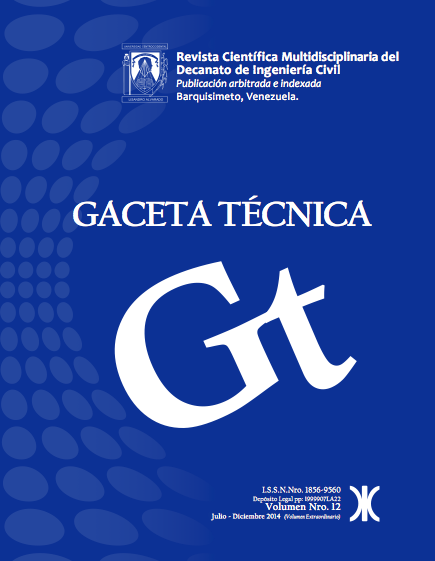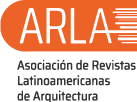Research qualitatively: meanings since the work of the degree UPEL-IPB masters
Keywords:
qualitative research, undergraduate work, learning of researchAbstract
The article reports a research that was aimed to interpret the social meanings that emerge in doing qualitative research in the works of the masters of UPEL - IPB. It focuses on the qualitative paradigm approach, based on the hermeneutic phenomenological method, with the versionists two recent graduates participants and four participants in performing the work of master’s degree UPEL IPB, who underwent in-depth interviews; and the respective analysis coding and categorization was used. The role of tutor, researcher reflexivity, difficulties in the process, new relationship of social actors, personal growth and importance of the experience: Among the findings were unveiled five guiding categories
Downloads
References
Gómez ,J.; Latorre, A.; Sánchez, M. y Flecha, F. (2006) Metodología comunicativa crítica. Barcelo- na . España. Editorial El Roure
Gutiérrez,G.. (1998). Metodología de las Ciencias sociales. México. Harla.
Martinez,M. (2004) Ciencia y arte de la investiga- ción cualitativa. (2da.ed.) Trillas: Mexico Piñero,M.L. y Rivera,M.E. (2013). Investigación cua- litativa: orientaciones procedimentales. Barquisi- meto. UPEL-IPB.
Pocovi, P. (2004). Diferentes vías para Investigar. Revista CANDIDUS. N.- 2. Enero – Marzo 2004. p. 109 Disponible: http://libreriaeuropa.com.ve/html/ detalles.php?id=005c03e10955507a85dad19b242e ba9b&dep=4&grp=0&sgp=0 [consulta 2010 junio 21]
Osses, S., Sánchez I., Ibáñez M. (2006). Investiga- ción cualitativa en educación. Hacia la generación de teoría a través del proceso analítico. Estudios pedagógicos [revista en línea] v.32 n.1 (pp 119-133) Disponible: http://www.scielo.cl/scielo.php?pid=s0 7187052006000100007&script=sci_arttext [consul- ta 2011 Junio, 16]
Ortiz Cepeda, L. (2012) Curso Investigación cuali- tativa: UNAD. Documento en línea. Disponible en: http://es.scribd.com/doc/215264040/Modulo-3-Cre- ditos-Ic-12-1-1. Consulta: [2012/07/31]
Ray, M., Bottorff, J., Boyle, J., Carey, M., Chapman, L., Cohen, M., Dreher, M., Hutchinson, S., Knafl, K. Leininger, M. Lipson, J., May, K., Morse, J., Muec- ke, M., Omery, A., Peters, J. sandelowski, M., Soro- fman, B., Stern, P., Swanson, J., thorne, S., Reimer, T., Waterman, J., Wilson, H.(2003). La riqueza de la fenomenología: preocupaciones filosóficas, teóri- cas y metodológicas. Asuntos críticos de los méto- dos de investigación cualitativa. (1a ed.). Universi- dad de Antioquia: Colombia.
Rojas, B. (2010). Investigación cualitativa. Fundamentos y praxis. FEDUPEL: Venezuela.
Rodríguez Jiménez,Y.J.(2009). La formación de do- centes investigadores: lineamientos pedagógicos para su inserción en los currículos .Revista TEO- RÍA Y PRAXIS INVESTIGATIVA, Volumen 4 - No. 1, Enero – Junio. Documento en línea. Disponible en: dialnet.unirioja.es/descarga/articulo/3726621.pdf . Consulta: 2013,Febrero,15
Strauss, A., Corbin, J. (2002). Bases de la investi- gación cualitativa. Técnicas y procedimientos para desarrollar la teoría fundamentada. Colombia: Uni- versidad de Antioquia.
Sverdlick, I.(comp);Anderson, G.;Augustousky,G.; Herr,K.;Rivas,I.;Suarez,D. (2007) La investigación educativa. Una herramienta de conocimiento y ac- ción. España. Edito Noveduc.
Tójar, C. (2006) Investigación cualitativa: compren- der y actuar. Madrid España editorial la muralla Valarino, E. (2000). Tesis a Tiempo. Barcelona, Es- paña: Grupo Editorial Carnero. Capítulo 4: El Direc- tor es muy importante, pp. 129-132. http://www. intercontacto.com/gente/?accion=detalle&id=120& idCat=4&idSec=2
Vargas Guillen, G. (2006) Tratado de epistemología. Bogotá. Ediciones san Pablo.
Published
How to Cite
Issue
Section
The opinions expressed by the authors do not necessarily reflect the position of the editor of the publication or UCLA. The total or partial reproduction of the texts published here is authorized, provided that the complete source and electronic address of this journal is cited. Authors have the right to use their articles for any purpose as long as it is done nonprofit. The authors can post on the internet or any other media the final approved version of their work.







.png)




